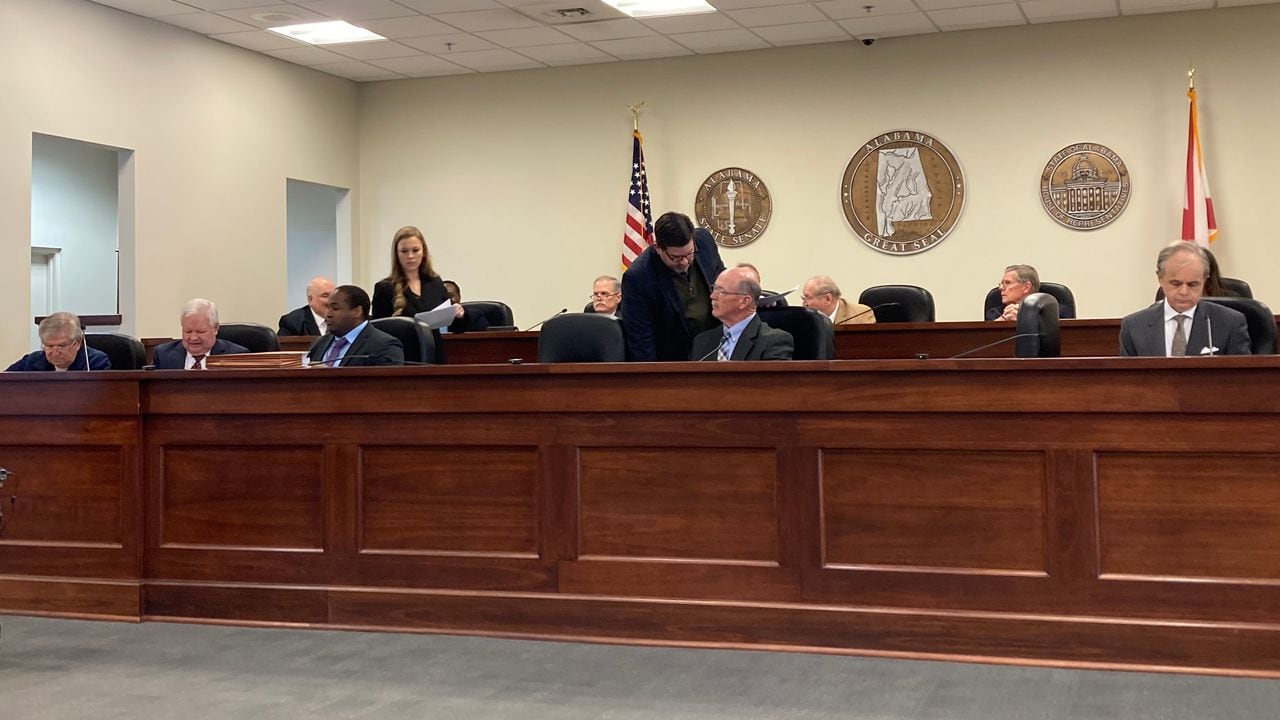Judge temporarily blocks medical cannabis dispensary licenses
Montgomery County Circuit Judge James Anderson on Thursday night issued a temporary restraining order to stop the Alabama Medical Cannabis Commission from issuing licenses to companies that will dispense medical cannabis.
Anderson granted a request by Yellowhammer Medical Dispensaries, which was awarded a dispensary license twice by the commission, in June and in August, but was denied during the third round of awards on Dec. 1.
The commission rescinded the first two rounds of awards. It was scheduled to issue the licenses awarded on Dec. 1 on Friday.
Anderson, in granting the request for a temporary restraining order, said Yellowhammer Medical Dispensaries showed at least a reasonable chance of succeeding on its claim that the commission acted unreasonably, arbitrarily, and abused its discretion when it awarded the licenses Dec. 1 under different rules than the first two rounds.
One change for the third round was that the commission discarded scores from third-party evaluators that were used to rank the applicants during the first two rounds. Yellowhammer Medical Dispensaries had the highest score for dispensary applicants. The commission discarded the scores after other applicants objected to them in lawsuits against the commission.
By law, the commission can issue only four dispensary licenses. Each dispensary licensee can operate three dispensaries. Yellowhammer Medical Dispensaries plans to operate dispensaries in Birmingham, Owens Cross Roads, and Demopolis.
Anderson’s order putting a hold on the issuance of licenses applied only to the dispensary category. The commission is also scheduled to issue licenses for cultivators, processors, transporters, and testing labs on Friday.
In his order, Anderson declined to put a hold on cultivator licenses after a request by one of the applicants, Pure by Sirmon Farms. The company, which intends to cultivate cannabis in Baldwin County, made arguments to the court similar to Yellowhammer Medical Dispensaries.
Like Yellowhammer Medical Dispensaries, Pure by Sirmon Farms was awarded licenses in June and August, only to see those rescinded, but was denied on Dec. 1.
Anderson wrote in his order that Pure by Sirmon Farms showed a reasonable chance of success on its claims.
But the judge said Pure by Sirmon Farms has an administrative remedy because it can request an investigative hearing before the commission and because the commission did not issue the full allotment of 12 cultivator licenses. The commission issued eight licenses out of 11 applicants considered. Anderson said that gives Pure by Sirmon Farms a chance to receive a license through the hearing process, so he declined to block the commission from issuing cultivator licenses.
As for the delay for dispensary licenses, Anderson wrote that he was sympathetic to the public interest in getting medicine to patients.
“That said, the Commission’s third round of licensing awards is at issue, and the prior two award rounds remain the subject of ongoing litigation – meaning that the Commission’s effort to issue licenses now, based on the third round, is already on uneven ground,” Anderson wrote. “Additionally, any balancing of the equities here weighs heavily in favor of Yellowhammer, whose injury will very likely be irreparable if immediate injunctive relief is denied and the Commission issues licenses, thus virtually eliminating any reasonable chance for Yellowhammer to obtain any meaningful review of the adverse licensing decision.”
Anderson wrote that he would set a hearing on the Yellowhammer Medical Dispensaries and Pure by Sirmon Farms requests for a preliminary injunction.
The judge also noted there are similar motions pending from applicants for integrated licenses. Integrated companies will cultivate, process, transport, and dispense medical cannabis. The commission is scheduled to issue those licenses Jan. 9.
Officials have said products could be available next year if licenses can be issued to allow companies to begin growing, processing, and selling them.
The Legislature approved medical marijuana in 2021 and created the commission to oversee seed-to-sale regulation of the industry, which will be fully intrastate.
Products can include gummies, tablets, capsules, tinctures, patches, oils, and other forms allowed by the legislation.
Patients who receive a recommendation from a certified doctor and receive a medical cannabis card from the AMCC will be able to buy the products at licensed dispensaries.
The products can be used to treat a wide range of conditions, including chronic pain, weight loss and nausea from cancer, depression, panic disorder, epilepsy, muscle spasms caused by disease or spinal cord injuries, PTSD, and others.
Read more: Alabama aims to get its medical cannabis program started while lawsuits continue
